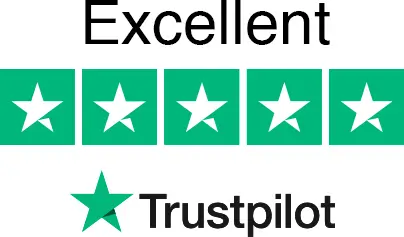Key Takeaways
- A buy back of shares allows a UK company to repurchase its own shares from existing shareholders, thereby reducing total share capital and reshaping ownership.
- Strict adherence to the Companies Act 2006 is vital—errors in the share buyback process can result in fines, tax penalties, or transactions being declared invalid.
- Reviewing the company’s articles of association for buyback provisions is always the essential first step.
- Valid shareholder approval—usually by a properly passed resolution—must be secured for every UK company buy back of shares.
- Mistakes such as missing statutory filings, late Companies House notifications, or failure to update registers are common and can lead to serious consequences.
- The wording of your share buyback agreement—especially clauses around price, payment terms, and funding source—determines if profits, capital, or a new issue will be used.
- Tax liabilities, including capital gains tax and possible stamp duty, need to be planned for in any share buyback UK transaction.
- Our share buyback agreement template and compliance checklist enable you to meet all UK requirements quickly and affordably.
- Using a trusted legal tech provider with professional support will reduce risks of invalid or defective buyback documentation.
- Go-Legal AI is rated “Excellent” on Trustpilot with over 170 five-star reviews from UK business owners.
What Is a Buy Back of Shares in the UK? (Plain English Guide)
A buy back of shares lets a UK limited company purchase its own shares from existing shareholders, usually to cancel them and reduce overall share capital. This is not the same as a transfer of shares between investors—here, the company itself steps in as the buyer. Buybacks must strictly follow the Companies Act 2006, as non-compliance risks invalidating the transaction and can lead to serious financial or tax penalties.
Getting the process right is essential: issues with documentation, missing shareholder approvals, or late Companies House filings could leave your company exposed. Below, you’ll find a practical, step-by-step breakdown of the buy back of shares UK process, relevant legal considerations, and clear guidance for making your transaction seamless and compliant.
What Is a Buy Back of Shares in the UK and How Does It Work?
A buy back of shares in the UK is when a company purchases shares from one or more existing shareholders, with the aim to either cancel those shares or hold them in treasury. Unlike a normal share sale between private parties, the company initiates and pays for this transaction. Most buy backs end with the cancellation of the shares, directly reducing the company’s share capital and often simplifying its ownership structure. Occasionally, re-purchased shares may be held in treasury for later resale.
This entire process is regulated to make sure creditors, minority shareholders, and company finances are properly protected under the Companies Act 2006.
Why Would a UK Company Buy Back Its Own Shares?
Share buybacks serve a range of strategic goals for private companies in England and Wales:
- Leaving shareholders: Allows exiting founders or major shareholders to be bought out by the company itself, rather than leaving control in new or disruptive hands.
- Employee leavers: Frequently used in startups to buy out shares from ex-employees, keeping the share register tidy.
- Optimising the capital structure: Helps companies with surplus cash reduce share capital, which can improve metrics and allow for more effective future fundraising.
- Investor returns: Offers an alternative to dividends for distributing profits or excess cash to existing shareholders.
- Removing small or inactive shareholders: Streamlines company administration and clarifies control.
What Legal Requirements Must Be Met for a Share Buyback in the UK?
Every UK company must strictly follow specific steps and legal requirements under the Companies Act 2006 for a share buy back to be valid:
- Check the Articles of Association: Ensure there are no restrictions or prohibitions on buybacks and amend if necessary before proceeding.
- Determine the Funding Source: Buybacks can be funded from distributable profits, the proceeds of a new share issue, or, exceptionally, out of capital (subject to added formalities).
- Draft and Agree on a Buyback Contract: A written agreement specifying terms and parties must be concluded before any buyback takes place.
- Obtain Shareholder Approval:
- An ordinary resolution (simple majority) is generally enough for most buybacks.
- If using capital, a special resolution (75% majority) and a director’s solvency statement are required.
- Complete the Buyback & Make Payment: Carry out the purchase as per the agreement.
- Cancel or Hold Bought-back Shares in Treasury: Update the statutory register to reflect changes.
- File Form SH03 and Contract at Companies House: Must be filed within 28 days for legal validity.
- Arrange for Tax & Stamp Duty: Notify HMRC if necessary and pay any required stamp duty (0.5% on consideration over £1,000).
Missing or mismanaging any of these steps—such as late filing or lack of the correct resolution—can leave your company exposed to fines or challenges.
How Do I Check My Articles of Association for Share Buyback Rules?
Before any buy back, confirming your company’s current articles of association is crucial:
- Find Your Articles: Retrieve a current copy from your company’s statutory books or download free from Companies House.
- Scrutinise for Buyback Provisions:
- Check if buybacks are expressly permitted, restricted, or prohibited.
- Identify any conditions, required approvals, or special rules (e.g., which share classes can be bought back, procedures for employee shares).
- Plan for Amendments if Needed:
- If prohibitive or ambiguous, convene a general meeting and pass a special resolution to amend the articles for clarity and compliance.
- Where articles are silent, double-check with one of our legal experts to avoid accidental breaches.
Step-by-Step: The Company Share Buyback Process in the UK
Here’s a clear breakdown of the essential buy back of shares UK process:
- Review Articles: Confirm your company can proceed—fix any issues first.
- Draft the Buyback Agreement: Create a compliant, tailored agreement.
- Obtain Shareholder Resolution: Get the correct approval (ordinary or special) and document it.
- Prepare Funding: Make sure funds come from a permitted source (profits, capital, or new issue).
- Complete the Buyback: Transfer and pay for the shares as agreed.
- Cancel Shares or Hold in Treasury: Reflect changes in the register of members.
- File with Companies House: SH03, the buyback agreement, and relevant documents—strict 28-day deadline applies.
- Deal with Tax & Stamp Duty: Make sure HMRC knows about the transaction and all stamp duty obligations are met.
| Step | Action | Deadline | Key Documents Needed |
|---|---|---|---|
| 1 | Review articles for buyback permission | – | Articles of association |
| 2 | Draft & agree buyback contract | Before buyback | UK share buyback agreement |
| 3 | Pass shareholder resolution | Before buyback | Ordinary/special resolution |
| 4 | Arrange funding | Before buyback | Board minutes, funding proof |
| 5 | Complete buyback & pay | On agreed date | Buyback agreement, payment record |
| 6 | Cancel/hold shares | Immediately after | Update share register |
| 7 | File SH03 and contract at Companies House | Within 28 days | SH03, buyback contract |
| 8 | Manage HMRC tax & stamp duty | Promptly | Tax/stamp duty forms |
⚡ Get legal tasks done quickly
Create documents, follow step-by-step guides, and get instant support — all in one simple platform.
🧠 AI legal copilot
📄 5000+ templates
🔒 GDPR-compliant & secure
🏅 Backed by Innovate UK & Oxford
Key Clauses to Include in a UK Share Buyback Agreement
A compliant UK share buyback agreement must be carefully drafted to capture all necessary legal and commercial terms. Here’s what to include:
| Clause/Component | What It Does | Why It’s Crucial |
|---|---|---|
| Parties to the Agreement | Clearly identifies company and selling shareholder(s) | Avoids confusion and ensures clear obligations |
| Number and Class of Shares | Specifies exactly which shares are being bought back | Prevents disputes; critical for Companies House |
| Purchase Price & Payment Mechanics | Sets out price, method, and timing of payment | Avoids disputes; meets statutory requirements |
| Completion Date & Conditions | Defines effective date and any pre-conditions | Coordinates process and clarifies buyback milestones |
| Warranties (e.g., title, capacity) | Confirms seller owns shares and can sell | Protects the buying company from later challenges |
| Governing Law & Jurisdiction | Specifies England & Wales | Solidifies enforceability and legal certainty |
| Cancellation or Treasury Treatment | States what happens to bought back shares (cancel or hold) | Companies Act compliance |
| Tax and Regulatory Filings | Allocates duties for notifications and filings | Avoids missed submissions and regulatory breaches |
| Restrictive Covenants (optional) | May limit seller’s post-sale activities if agreed | Protects business interests after buyback |
| Confidentiality | Ensures agreement terms remain private | Preserves business confidentiality |
What Tax Issues and Filings Do I Need to Consider After a Share Buyback?
A UK share buyback can have tax implications for both the company and the shareholder. Consider the following essentials:
- Stamp Duty: Payable if the transaction exceeds £1,000 (at 0.5%). The company handles this.
- Capital Gains Tax (CGT): The selling shareholder may owe CGT on any gain, unless HMRC treats payment as income.
- Income Tax Treatment: Particularly relevant for employee shareholders. HMRC can treat buyback proceeds as income, triggering higher tax if certain criteria are unmet.
- Companies House Filing: File Form SH03 and a copy of the signed buyback agreement within 28 days to ensure validity and avoid penalties.
- HMRC Notification and Clearance: Advance clearance can be sought if you want certainty that capital treatment will apply. This provides peace of mind for all parties.
Common pitfalls include missing Companies House deadlines, treating gains incorrectly (CGT vs. income), or failing to pay stamp duty.
Common Mistakes to Avoid in the UK Share Buyback Process
Avoid these costly errors—each can derail your share buyback UK transaction:
| Mistake | Risk | How to Avoid |
|---|---|---|
| Failing to secure shareholder approval | Buyback is invalid; may be reversed | Always pass and record a compliant resolution |
| Not reviewing or updating articles | Breaches constitution; grounds for challenge | Check and amend articles if uncertain |
| Using an impermissible funding source | Unlawful transaction; financial penalties | Confirm source eligibility in advance |
| Late Companies House filing | Penalties; invalid transaction | SH03 and documents must be timely filed |
| Incorrect tax treatment | HMRC fines or excess tax | Get clarity on capital vs. income |
| Missing key agreement clauses | Later disputes or unenforceability | Use our AI template tool |
| Incomplete or late stamp duty payment | Fines and compliance investigations | Arrange stamp duty payment promptly |
| Relying on generic or foreign templates | Document or process not valid in the UK | Use our up-to-date, UK-vetted agreements |
Share Buyback vs. Share Redemption: What’s the Difference?
It’s important to distinguish between a buy back of shares and share redemption:
- Share Buyback:
- Any class of issued shares may be bought back, if allowed by the articles.
- Used for major or employee exits, capital returns, or corporate restructuring.
- Funding can come from profits, capital, or a new share issue, subject to legal restrictions.
- Share Redemption:
- Only applies to “redeemable shares”—those created as such in the articles and at the point of issue.
- Typically pre-arranged and straightforward; often used for employee and investment exit rights.
- Cannot be used for ordinary shares unless classified as redeemable at issue.
How Our Platform Simplifies the UK Company Share Buyback Process
Our AI-powered tools streamline every stage of your UK company share buyback, reducing compliance risks and saving you time:
- Step-by-step checklists: Generate a buyback roadmap customised for your company, articles, and funding method.
- Dynamic, lawyer-approved templates: Produce compliant buyback agreements and board documents in minutes.
- Instant AI-powered contract review: Prevent errors and spot missing clauses before you sign or file.
- On-demand expert support: Book a rapid review with a UK-registered legal professional for unusual or high-value transactions.
- Smart filing reminders: Track SH03, Companies House, and tax deadlines—never miss compliance milestones again.
Frequently Asked Questions
What documents are needed for a UK company share buyback?
You will need: the latest articles of association, a written share buyback agreement, correct board and shareholder resolutions, Form SH03 with Companies House, evidence of payment, and, if needed, tax and stamp duty forms.
Do all shareholders need to approve a buyback?
Not necessarily. Normally, an ordinary resolution (simple majority) suffices unless your articles require more. Buybacks out of capital require a special resolution (75%) and a directors’ solvency statement.
How long does a share buyback take from start to finish?
With a clear process and prompt action, most buybacks can complete within two to four weeks to allow for meetings, approvals, payments, and filings.
Are there limits on how many shares can be bought back?
The Companies Act 2006 does not set a hard cap, but at least one non-redeemable share must remain in issue and only permitted funding sources can be used.
What are the penalties for missing a Companies House deadline after a buyback?
Penalties can include fines, reversal or invalidity of the transaction, and increased Companies House or HMRC scrutiny.
Can a buyback be reversed after completion?
It can be, but only by court order in most cases. Proper compliance from the outset is far easier and less costly than trying to unwind a defective transaction.
Do I have to notify HMRC after buying back shares?
Yes. If there is uncertainty over capital or income treatment—commonly for employee or director exits—seek advance clearance. Stamp duty must be handled promptly where applicable.
Who pays stamp duty in a UK share buyback?
The company is responsible for paying stamp duty (normally 0.5% on consideration above £1,000) and must include this as part of the compliance process.
Is a buyback the same as a capital reduction?
No. Capital reductions are permanent reductions to stated capital by court or special resolution, while a buy back is a specific, regulated way to purchase and usually cancel issued shares.
Can my company use a free buyback agreement template?
It is risky. Most free templates miss UK-specific legal and tax rules. Our templates are fully up-to-date and can be AI-reviewed for Companies Act compliance instantly.
Navigate Your UK Company Share Buyback with Confidence
Managing a UK company share buyback isn’t just about cancelling shares—it’s about protecting your business, complying with the Companies Act 2006, and safeguarding all parties from fines and disputes. By understanding every required step, avoiding common pitfalls, and using expertly drafted, up-to-date documents, founders and directors can achieve clean, effective ownership changes with no unpleasant surprises.
With our step-by-step platform, checklists, and legal expert support, you can start, execute, and file your company share buyback with minimum stress and maximum compliance. Don’t let mistakes or old documents threaten your growth. Create a compliant UK share buyback agreement and get tailored legal support at every stage—right from your browser.
Ready to get started? Build your custom agreement, generate a compliant checklist, and keep your company safe with our all-in-one legal workflow.
⚡ Get legal tasks done quickly
Create documents, follow step-by-step guides, and get instant support — all in one simple platform.
🧠 AI legal copilot
📄 5000+ templates
🔒 GDPR-compliant & secure
🏅 Backed by Innovate UK & Oxford










































